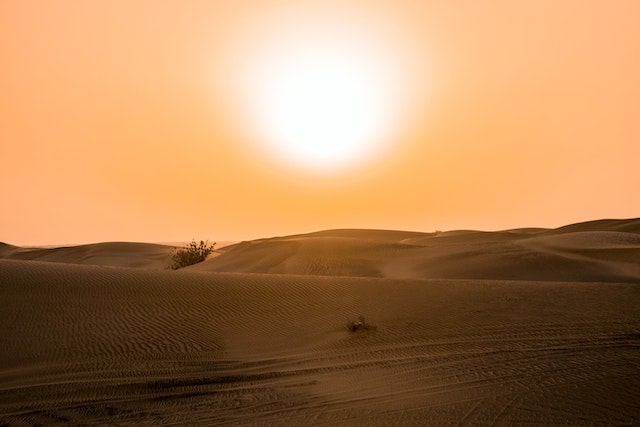Exploring the Sizzling Secrets Behind Dubai’s Sweltering Climate
Dubai, the glittering gem of the United Arab Emirates, is renowned for its skyscrapers, luxurious lifestyle, and year-round sunshine. However, there’s one aspect of this modern metropolis that can’t be ignored – its scorching hot weather. Temperatures in the Gulf Arab city can soar above a hundred degrees day and night. But why is Dubai so hot? In this article, we’ll delve into the factors that make Dubai one of the hottest places on Earth.
Location Near the Tropic of Cancer
One of the primary reasons for Dubai’s extreme heat is its geographical location. Dubai is situated near the line of the Tropic of Cancer. This imaginary line marks the northernmost point on Earth where the sun can be directly overhead, and it plays a pivotal role in the city’s weather patterns. Being so close to the Tropic of Cancer means that Dubai receives intense sunlight year-round, contributing to its blistering temperatures.
Desert Climate and Low Rainfall
Dubai’s climate can be best described as a hot arid desert climate. This arid condition is primarily responsible for the city’s high temperature and low rainfall. The desert landscape features vast stretches of sand dunes and minimal vegetation. With little natural shade and moisture-retaining greenery, the land absorbs the sun’s heat, leading to sweltering conditions.
The United Arab Emirates, where Dubai is located, is known for its arid climate, and Dubai is no exception. Precipitation is meager, and the few rain showers that do occur tend to be sporadic and insufficient to significantly cool down the city. This lack of rainfall exacerbates the already extreme heat, making Dubai feel like an oven for much of the year.
Gulf’s Extreme Heat and High Humidity
Dubai’s proximity to the Persian Gulf introduces another dimension to its climate – high humidity. Humidity comes from water evaporating from large bodies of water, and the Persian Gulf is a substantial contributor. This combination of the Gulf’s extreme heat and high humidity is a dangerous mix. It results in a sensation of even greater warmth, as the human body struggles to cool itself through evaporation when the air is already saturated with moisture. This is why Dubai can often feel oppressively hot, leaving residents and visitors alike searching for refuge in air-conditioned havens.
Sweltering Summers
Dubai’s summer season is synonymous with heat. In fact, it starts to get too hot for outdoor activity by the end of May. The summer months, particularly June, July, and August, are when Dubai experiences its hottest weather. Daytime temperatures can easily exceed 100 degrees Fahrenheit (38 degrees Celsius), and nighttime offers little respite as temperatures often stay above 90 degrees Fahrenheit (32 degrees Celsius). The unforgiving sun, combined with the high humidity, creates a genuinely scorching hot experience.
Dubai’s Not the Hottest Place on Earth
While Dubai is undoubtedly hot, it doesn’t hold the title for being the hottest place on Earth. In fact, there are other locations that experience even more extreme temperatures. The Independent, for instance, has compiled a list of the 10 hottest places in the world, and the UAE is not on it. Dubai may seem unbearable at times, but there are places where the mercury soars even higher.
Relief in the Winter Months
If you’re wondering whether it ever gets cool in Dubai, the answer is yes, but it’s all relative. January is typically the coolest month, with an average temperature of 67°F (19°C). While this might not be considered “cool” by most standards, it’s a significant drop from the scorching summer temperatures. Residents and visitors eagerly await this milder period to engage in outdoor activities and enjoy the city’s attractions without the relentless heat.
Conclusion
So, is Dubai the hottest place on Earth? While it’s certainly no stranger to extreme heat, it doesn’t claim the top spot in the world’s hottest destinations. Nevertheless, the combination of its geographical location, desert climate, low rainfall, and high humidity results in a climate that feels relentlessly hot for a significant part of the year. For those who can handle the heat, Dubai offers a dazzling array of attractions and experiences, but it’s essential to stay hydrated and take precautions to beat the heat during the scorching summer months.

